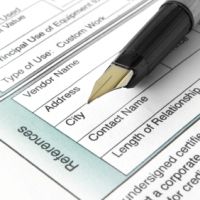
Think before you select
Jayne Mattson, senior vice president of Keystone Associates, a career management consulting firm headquartered in Boston, says a good reference is someone who:
- Wants to see you succeed as much as you do.
- Can clearly articulate your strengths, areas of expertise and development.
- Can think on her feet if asked a tough question.
- Is someone for whom you feel good about being a reference.
While several people you know may fit the bill, consider whose position or ability to give pertinent information would be most useful to the prospective employer.
"In most instances, companies are looking for professional references -- people you have worked for or with who can comment on your skills and accomplishments," says Tracy A. Cashman, partner and general manager of the information technology division of Winter, Wyman, one of the largest staffing firms in the Northeast. "There are occasions when companies want more personal/character references, but you should have at least three or four professional references at your disposal, ideally to include a past manager, a colleague, a subordinate (if appropriate) and perhaps someone from another team/division who you worked with on a particular project."
Since you are looking for references to be enthusiastic advocates, it also is worth considering who might best convince others of your abilities. "There's nothing worse than a potential employer checking a reference who only answers in monosyllables and provides no detail," Cashman says.
Likewise, Mattson notes that it is wise to avoid anyone with whom you did not have a good working relationship and people whom you worked with years ago who are not up-to-date with your current career endeavors.
If you're conducting a secret job search, you might want to think carefully about choosing someone from your current workplace. Make sure the person can be trusted to keep the search confidential.
Ask before you list
Contacting people you'd like to use as a reference before listing them serves several purposes:
- It makes you look professional and courteous.
- It gives them time to prepare and not be caught off-guard by a phone call they didn't expect.
- Their willingness or hesitancy can help you judge whether or not they would make a good reference.
Lavie Margolin, a career coach and author of "Lion Cub Job Search: Practical Job Search Assistance for Practical Job Seekers," warns that just because someone agrees to give a reference, it does not mean that it will be a good one. "Your former supervisor may have had a different impression than you of the quality of work that you provided ... Or what if your boss felt you left him in the lurch when you quit the company?" Instead of assuming, he suggests having a brief conversation with the potential reference in which you can ask what he thought about you as a professional and what he plans to share.
Keep people in the loop
Prepare your references to support your candidacy by briefing them on your background and career goals. Mattson suggests providing each with a current résumé, access to your LinkedIn profile and information on the best way to get in touch with you.
While it is good to update people occasionally on the status of your search, contact is especially useful when you know a potential employer is about to begin checking references. Discussing the position and pointing out key elements that you are trying to emphasize can help your reference prepare informative answers.
Be sure references can be contacted
Once you've finalized your references, be ready to present them to a prospective employer when asked. Margolin suggests creating a one-page list that includes the following for each reference:
- 1. Person's name
2. Job title
3. Relationship to you (such as co-worker or direct supervisor)
4. Company name
5. Address
6. Contact info (phone number, email address)
Then, check back with your references from time to time to make sure that contact information has not changed. The best reference in the world becomes useless if he can't be reached.
Source: careerbuilder